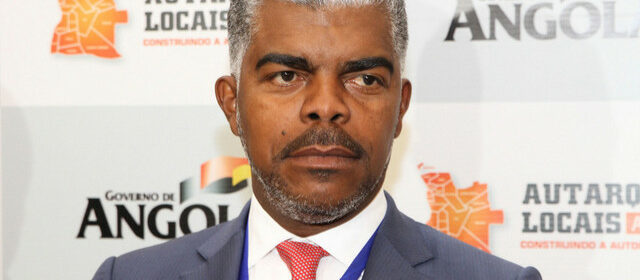Angolan NGOs expose alleged corruption in government infrastructure projects

A coalition of Angolan non-governmental organizations has raised concerns about irregularities in public infrastructure projects funded under the Integrated Municipal Intervention Plan (PIIM), which they claim exhibit significant signs of corruption.
The findings, based on six months of monitoring, were unveiled during a press conference by the Transparency and Truth Task Force for Asset Recovery and Reinvestment.
The NGOs’ 62-page report scrutinizes multiple projects, with particular focus on four: three in Luanda Province and one in Benguela.
João Malavindele, Executive Director of OMUNGA, highlighted delays in a Benguela police station project budgeted at 33 million kwanzas (approximately €31,000). Despite exceeding 60% of its financial execution, the project remains incomplete.
“Neither the contractor nor the supervising entity had a physical presence in Lobito municipality,” Malavindele revealed, adding that officials failed to confirm whether the project underwent a public tender process.
“The conclusion is clear—there was no public tender.
If there had been one, this information would have been available.
The assigned budget is disproportionately large compared to the project’s scale,” he stated.
Malavindele also noted that many companies involved in such projects lack prior experience in construction, with some appearing to exist solely for these contracts.
Similar concerns emerged in Luanda, where three projects—two school constructions and a road rehabilitation—showed evidence of financial opacity.
A public school with 12 classrooms, valued at nearly 270 million kwanzas (€260,000), was halted due to a legal dispute over land ownership.
Rafael Morais, President of Uyele — Civic Association, decried the lack of transparency.
“Attempts to gather information from the administration, contractor, and inspector were met with silence.
This highlights the authorities’ disinterest in accountability.”
Bartolomeu Milton, President of Pro Bonu Angola, condemned the financial irregularities.
“Year after year, funds are allocated to PIIM projects that remain unfinished, raising questions about the execution process.”
Guilherme Neves, President of the Hands-Free Association, pledged continued oversight to ensure that recovered assets genuinely benefit communities.
The organizations called for greater transparency and adherence to integrity principles in the allocation and execution of public projects, emphasizing that these lapses undermine public trust and the potential impact of Angola’s development initiatives.
About The Author
dailymailafric
I am an avid African news observer, and an active member of Daily Mail Africa.
I’m Passionate about staying informed on diverse topics across the continent,
I actively contribute to publishing on political, economic and cultural developments in Africa.



